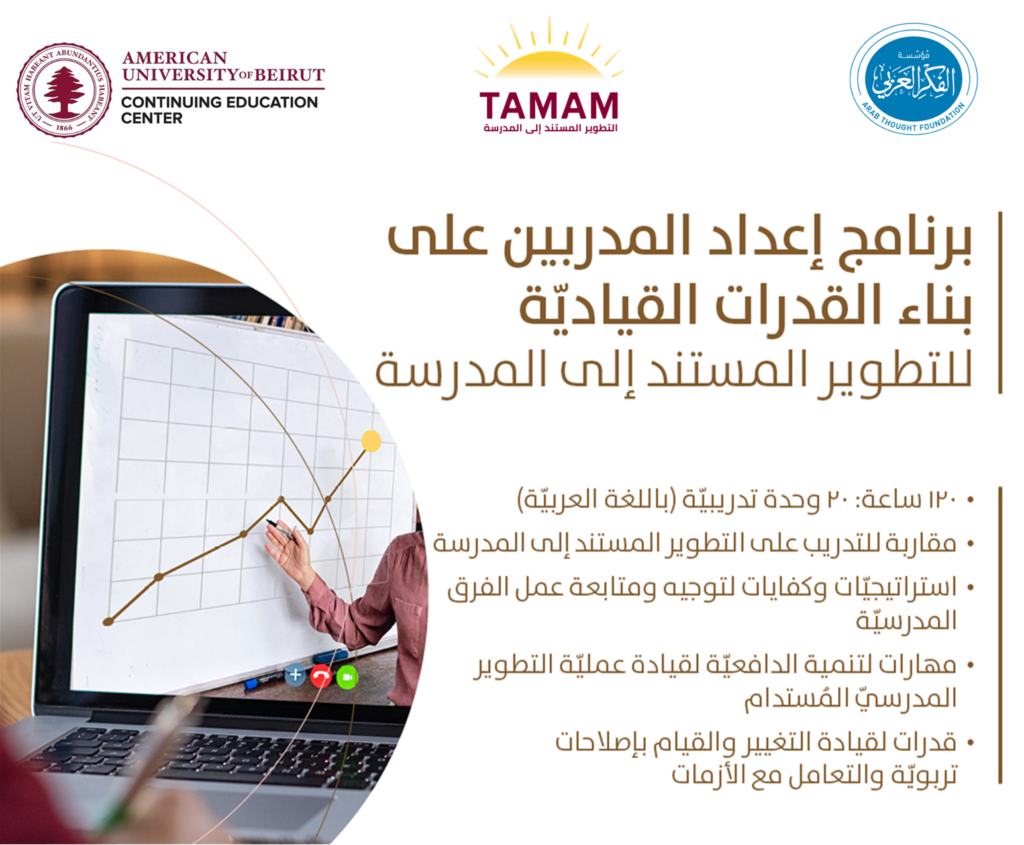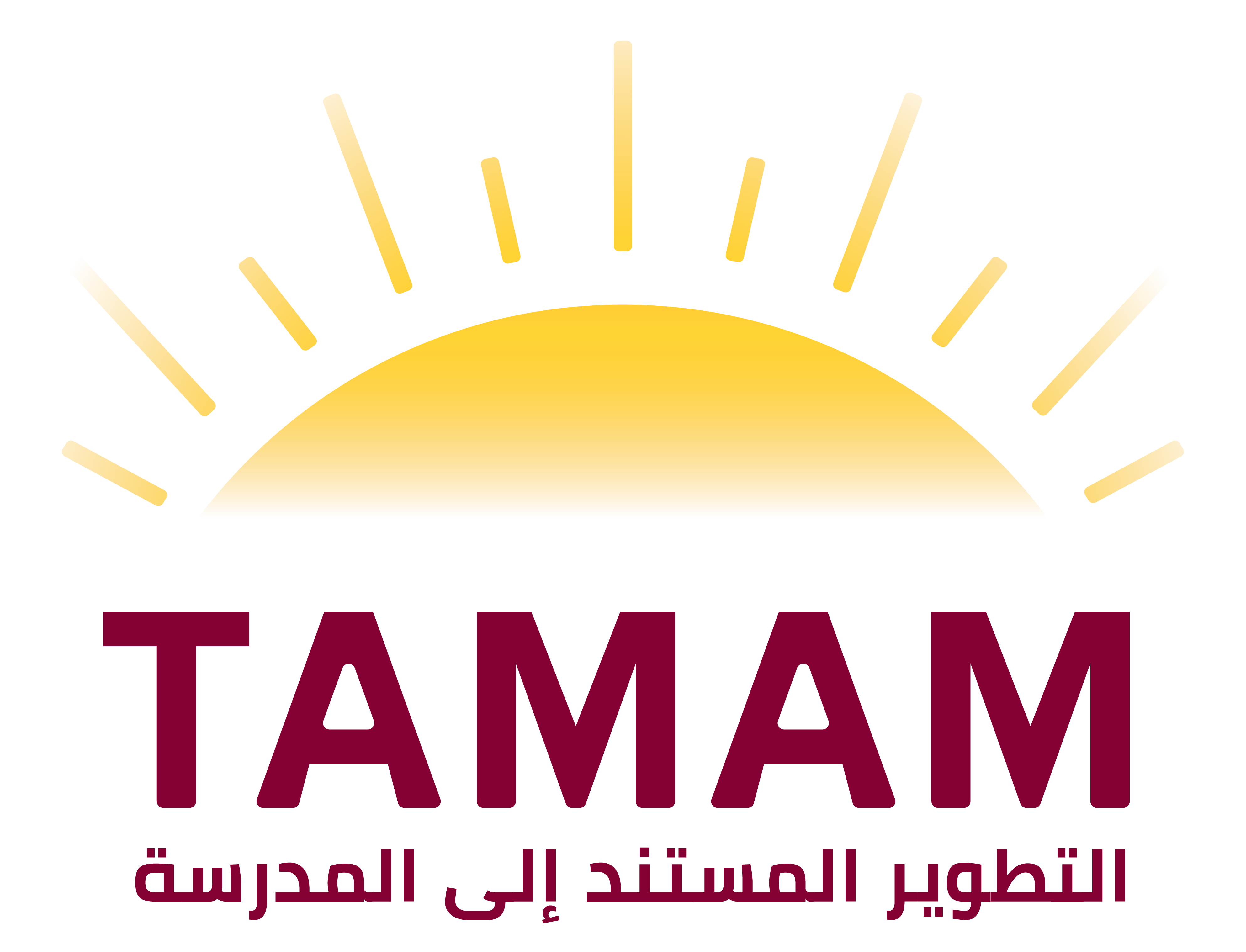محام وشريك مؤسس في مكتب رشيد فهمي كرامي للمحاماة والإستشارات القانونية. محكم ووسيط دولي معتمد لدى عدد من المراكز المحلية والعالمية. مدرب معتمد على الوساطة والتحكيم لدى نقابة المحامين في طرابلس ومركز التسوية الفعالة للنزاعات– لندن ومعهد المحكمين القانونين. وضع وشارك في العديد من الدورات التدريبية المحلية والدولية المتعلقة بالوساطة والتحكيم. تولى وضع عدة مشاريع قوانين أبرزها مشروع قانون الوساطة المعتمد من نقابة المحامين في طرابلس والمناقش حالياً أمام اللجان النيابية المختصة. كما تولى وضع قواعد مركز الوساطة والتحكيم في نقابة المحامين في طرابلس. بالإضافة الى إعداد عدد من الدراسات القانونية والمتعلقة بالوساطة والوسائل البديلة لحلّ النزاعات. خبير سابق في الوساطة لدى مؤسسة التمويل الدولية. مستشار وزير الشؤون الإجتماعية لشؤون المرأة والطفل والمشرف على خطة وزارة الشؤون الموضوعة لحماية المرأة والطفل والموقعة مع الـيونيسف. عضو في جمعية بيت التدريب والحوار

The “Coaching for leading school-based improvement” Certificate Program is the first certified training program that is delivered through the Continuing Education Center (CEC) at AUB. “This program was designed based on the need to have educational practitioners in the Arab region who are able to respond to emerging challenges, lead change, and introduce reform in their educational institutions to improve education and student learning.
The Program is based on international literature related to educational leadership and school improvement but is designed to fit the context of the Arab Region and is presented in Arabic Language.” This Program provides training for educators to become school improvement coaches. These coaches train school teams on how to lead school-based improvement following TAMAM’s research-based approach that is customized and grounded in the context of the Arab Region.
This Program prepares the coaches to acquire the needed skills and competencies to provide continuous guidance and support for the school teams while being coached on TAMAM eleven competencies, skills related to the school improvement journey, and the attitudes required to sustain their commitment to lead school-based improvement.
Moreover, this program prepares the coaches with the appropriate approach to monitor the work of the school teams and to provide them with adequate support and challenge. The approach also prepares the coaches with the skills to negotiate with the administrators of schools to urge them to provide the teams with supportive conditions that sustain their commitment to engage in TAMAM activities and facilitate their work on leading the school-based improvement even after the gradual withdrawal of the coaches.
The program consists of four courses:
This course aims at introducing the educational theoretical background for sustainable school-based improvement and the needed principals and strategies to initiate, implement, and transform the innovative interventions into sustainable practices that support sustainable self-renewal of schools. The course describes the characteristics of self-renewing schools, the educator who leads improvement, and the profile of the student we aspire to graduate. This course also introduces the TAMAM coaching approach and explains the coaches’ roles and responsibilities while training the school teams to follow the TAMAM research-based and contextualized approach to leading school based-improvement. The course illustrates the personal and professional characteristics and the technical skills the individuals should exhibit to become a successful coach for school-based improvement.
This course aims to provide coaches with the strategies used to train school teams on the TAMAM eleven competencies. The course provides a deep explanation to the knowledge, skills, and attitudes of each of the TAMAM eleven competencies and presents tips for the coaches to guide them in training the school teams. The course also presents the available resources and coaching modules related to these competencies.
This course aims to provide coaches with the strategies used to train school teams on the TAMAM school improvement journey that school teams follow to design an improvement project. The course provides a deep explanation to each station of the TAMAM school improvement journey and presents the available resources and coaching modules related to these competencies. The course also presents tips for the coaches to guide them in training the school teams and highlights the major aspects and challenges that coaches should be aware of.
This course aims to introduce the steps on the coaching journey that the coaches follow to design, monitor, and implement the coaching plan. The course trains the coaches on how to collect data about the school and its team, how to analyze the collected data to identify the coaching needs, how to design the coaching plan based on needs, and how to plan for the teams’ learning experiences. The course also trains the coaches on how to collect data about the team’s progress to monitor and evaluate their work on the improvement journey, their acquisition of the TAMAM competencies, and their motivation to work on improvement. This course also discusses the coaches’ role in coordinating with expert coaches who train and support the team in special topics and areas related to their improvement projects. Throughout this course, the participants will be introduced to the training modules and resources available at TAMAM, in addition to the templates and tools that coaches and team members can use for data collection, analysis, or documentation.
Delivery
Through Zoom, one session per week.
Audience
To register for this course, applicants must have a degree in Education (BA, MA, or TD); have experience in the educational field (teaching or administration); and demonstrate good English and Arabic language competence based on prior formal schooling. Typical participants would be teachers who are willing to launch improvement projects in their schools, school principals, educational supervisors, educational researchers interested in school-based reform, and education students completing their Masters or PhD degrees.
Language
The program will be delivered in Arabic only.
